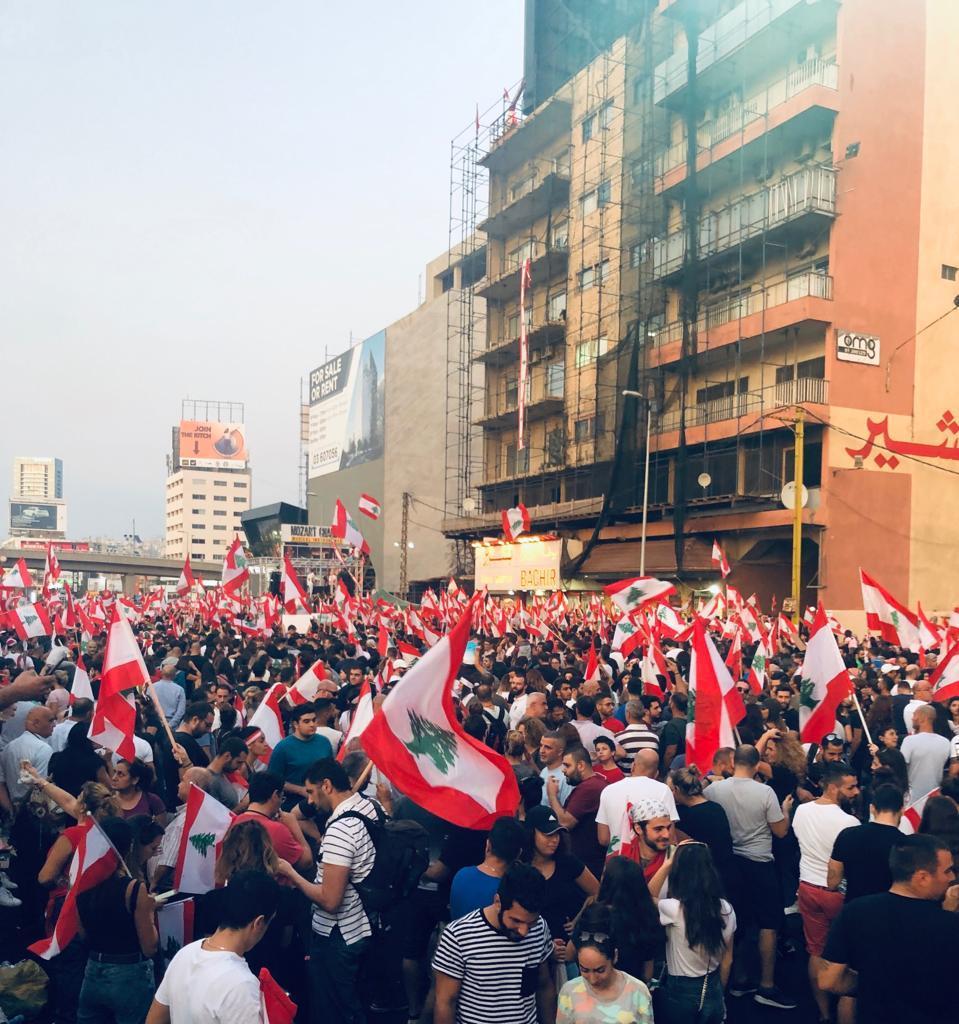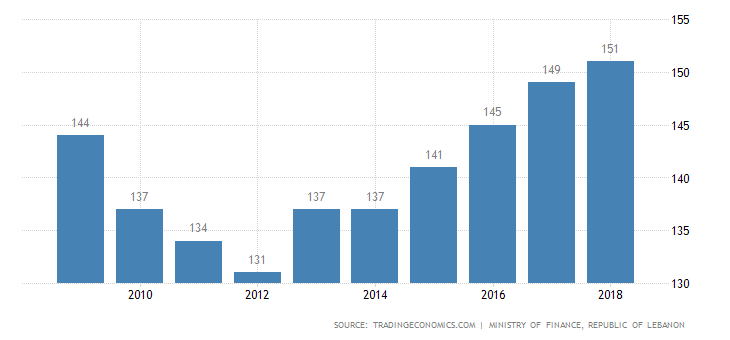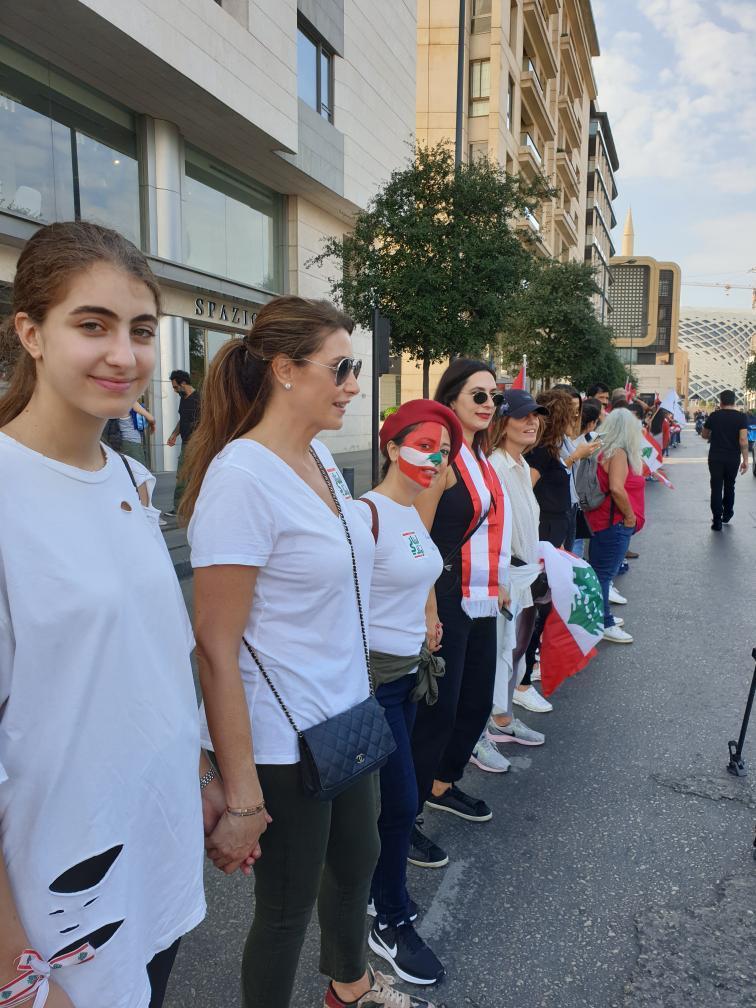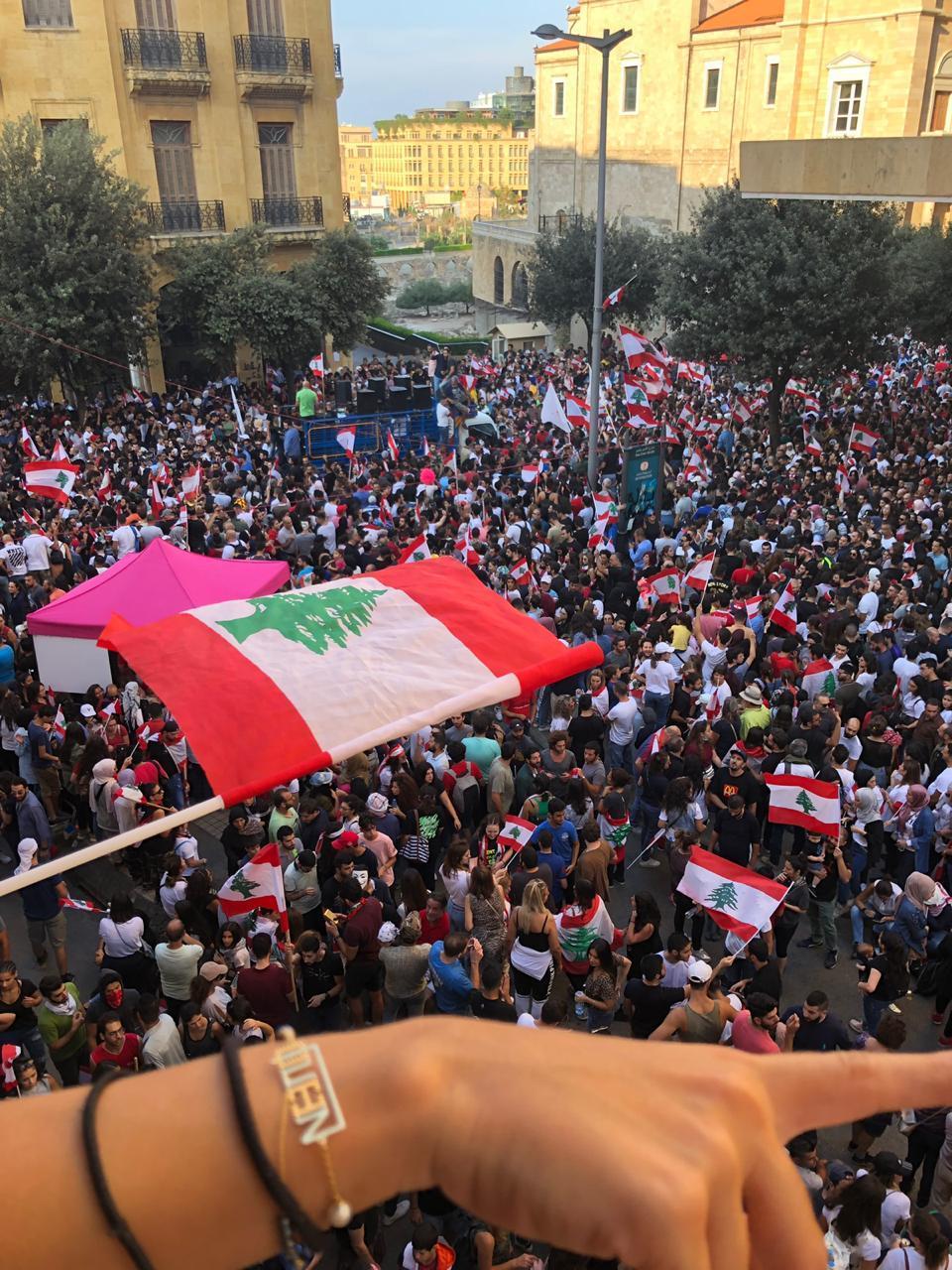Lebanon Revolution Exposé: From WhatsApp To PM's Resignation

Party Official Shot By Soldiers
The protests in Lebanon took a sad turn yesterday. Following weeks of peaceful protests which saw families enjoying what many described as a festival atmosphere, the protests claimed their first victim. A local party official, Alaa Abou Fakher, a member of the Druze Progressive Socialist Party, was shot dead by soldiers during clashes between protestors and security forces trying to disperse the crowds. The DPSP is a non-secular, non-sectarian party which has been at the heart of the calls for reform in the Lebanon.
According to reports, the party official was killed in front of his wife and child who were also part of the protest. The Army has maintained that the shooting was an accident and the solider in question is under question. However, following the shooting, many are worried that the increasingly tense stand-off between protestors and security forces over recent days will now boil over into more violence.
As the protests continue to grow in size and attract more attention from the global community, its important to understand why they started in the first place?
Largest Lebanese Protests In 15 Years
Citizens in Lebanon have been flooding the streets in their thousands as part of mass protests which have flared up against the government and now running close to entering their second month. The catalyst for the protests was the proposed introduction of a tax on WhatsApp voice messages as well as other messaging services. The government proposed bringing in the tax on Monday October 14th. However, the move was abandoned only hours later after young people (which mainly use the service) took to the streets and began protesting.

However, the protests quickly ballooned, reflecting the general level of anger over the allegations of corruption in the government as well as high levels of debt and a lack of basic public services. What started out as anger over a single issue has now turned into a much broader protest with citizens calling on the government to step down.
The economy in the Lebanon has been in very poor shape for quite some time. Debt to GDP has skyrocketed in recent years, moving from lows of 131% in 2012 to the current level of 150%. Over the same 10 year period, the annual GDP growth rate has fallen from highs of 10.1% in 2009 to current lows of just 1%, reflecting a severe contraction in economic activity.

The government has often been accused of massive corruption with funds being misused. At the same time, the country suffers from very poor levels of public service with appalling infrastructure, frequent power cuts and massive issues regarding waste management and collection. The Lebanese people have now decided that enough is enough and are calling for the government to be disbanded. For a deeper understanding of the specific economic issues facing Lebanon, as wel as some further inight into the current situation, make sure to check out this piece from the Tickmill Research Team
Hariri Offered Reforms
However, in response to the protests, which continue to grow, the government was forced to listen. Prime Minister Saad Hariri outlined a program of 25 reforms that the government was planning to make and also said that he would back early elections if that was the wish of the protestors. The reforms outlined include promises to reduce pay for politicians as well as forcing private banks to help support the government in getting out of debt. However, the general reaction to reforms outlined was one of disappointment with protestors saying that the reforms were not enough and do not address the key issues of corruption. As such, the protestors maintained their calls for the government to be stepped down and replaced.

Lebanese Central Bank Governor Warned Of Economic Collapse
The protests, which are the largest to take place in the country over the last fifteen year are now sprawling into their fourth week as protestors continue to effect road closures, demanding the president resign. Speaking with CNN, the governor of the country’s central banks, Rias Salame warned that the country is now teetering on the edge of an economic cliff. Salme said that unless an “immediate solution” can be found "It's a matter of days, because the cost is heavy on the country”.
Salame went on to say that “today there is no economic activity in the country. Imports are getting difficult to channel because the banks are closed, and opening letter of credits is more difficult than it was before”.
Salame’s starkest warning came over the country’s debt obligations. The central bank governor fears that the country will soon default on its national debt. Salame said “we have international debts to cover. If we don’t cover, we are in a default situation”.

Lebanese PM Resigns
As of today, the situation has developed further with PM Hariri having announced his resignation amidst the ongoing protests. Hariri said "For 13 days, the Lebanese people have waited for a decision for a political solution that stops the deterioration. And I have tried, during this period, to find a way out, through which to listen to the voice of the people."
Speaking during a televised address the PM said that a major change was needed to help address the ongoing issue of the protests and has said that he will officially tender his resignation, including that of the government, to President Michel Aoun. The President initially asked Hariri to stay on as a caretaker PM to an interim government. However in light of the ongoing protests and the growing calls for his resignation, Hariri officially stepped down on Tuesday. While this might have offered some initial appeasement to protestors, the shooting of a party official the next day has seen tensions flaring up once again.
President's Comments Spark Outrage
Aoun's response has sparked further outrage among voters with the President commenting during an interview this week that: “If people aren’t satisfied with any of the decent leaders let them emigrate." In a series of particularly careless remarks, Aoun went on to say: "I ask the Lebanese not to behave with such negativity especially as this can lead to counter negative behavior and, consequently, a confrontation.If they continue this way, even if we don't give them a slap, the country will die."
Protestors are calling for a total overhaul of the government though as yet, President Aoun is holding firm and the protests are raging on. Aoun maintains that the next government will need to resemble the one that has just collapsed under the weight of the protests. However protestors have said this is unacceptable. Many people re-joined the protests alongside new protestors in the wake of the President's comments which have drawn widespread criticism.
Jammal Trust Bank Collapses
Along with the loss of a life and the threat of further violence, the economic toll of the stand off is also being felt. The Jammal Trust Bank was forced to close down this week as its capitulated under the weight of US sanctions issued last month. The US accused the bank of helping fund the Hezbollah movement (back by Iran). The collapse of the bank is yet another sig on the economic fragility in the Lebanon which is likely to intensify as the protests continue.
As the situation develops, we will keep you updated on all further developments
Disclaimer: The material provided is for information purposes only and should not be considered as investment advice. The views, information, or opinions expressed in the text belong solely to the author, and not to the author’s employer, organization, committee or other group or individual or company.
Past performance is not indicative of future results.
High Risk Warning: CFDs are complex instruments and come with a high risk of losing money rapidly due to leverage. 72% and 73% of retail investor accounts lose money when trading CFDs with Tickmill UK Ltd and Tickmill Europe Ltd respectively. You should consider whether you understand how CFDs work and whether you can afford to take the high risk of losing your money.
Futures and Options: Trading futures and options on margin carries a high degree of risk and may result in losses exceeding your initial investment. These products are not suitable for all investors. Ensure you fully understand the risks and take appropriate care to manage your risk.
Patrick has been involved in the financial markets for well over a decade as a self-educated professional trader and money manager. Flitting between the roles of market commentator, analyst and mentor, Patrick has improved the technical skills and psychological stance of literally hundreds of traders – coaching them to become savvy market operators!
